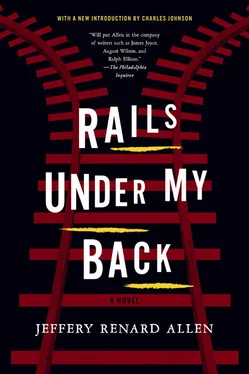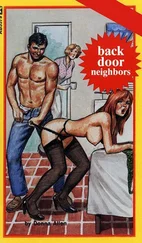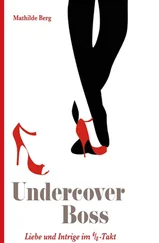Pool, you like to cook.
The hell if I do. I learned from my grandmother. She put me in the kitchen and made me cook. Didn’t have to show me nothing. When you have to eat your own cooking, you learn how to do it right.
I still think you like to cook.
Well, I got to cook these rabbits for my wife. Seasoned them last night.
Rabbit?
Yeah. You ain’t never had no rabbit before?
Hatch shook his head.
Taste like chicken.
Yeah?
The dark in the room gave way to the first full light of morning.
Once you get the wild taste out. I told my wife, she buy em, I’ll cook em. You wait here til tonight. You can taste them.
I’d like to, I really would, wish I could stay, but I got some things to do today.
And yo mamma probably worried. Did you call her?
Hatch lied.
Well, come on in here and make you some breakfast before you leave.
POOL, FRY ME SOME FISH, Lee said.
What you gon do fo me?
Pool, you bad. You a bad man.
See this gap between my teeth. Pool pointed to it with his finger. That’s my nipple holder. I put your nipple between there, then flip my tongue like this—
Lee turned her head. You bad. You a bad man. Ain’t that right, honey?
Hatch hesitated. Pool, are you bad?
Hell yes.
Fry me some fish.
Lee, stop beggin. Can’t you see I’m resting here?
I’ll fry you some fish, Hatch said.
You don’t have to do that, honey.
No, it’s okay. I’ll fry you some. Hatch rose from his seat. You gon have fish for breakfast?
What, Pool said, you ain’t never had no fish and grits for breakfast?
No.
Pool shook his head. Where you been all yo life?
Leave him alone, Lee said. Go on, honey. Go on. Hold the grits.
The kitchen drew Hatch in. He followed Pool’s instructions from yesterday. Get the grease really hot. Put the flour in a paper bag with a little bit of cornmeal. Shake the fish around good.
Don’t burn it up in there.
I won’t. He fried the fish good on one side, then flipped it over with a spatula.
Don’t flip it with no fork.
I won’t. He fried the fish good on the other side, then lifted it from the popping skillet and laid it on a napkin-covered plate to drain the grease.
Don’t forget to turn off that skillet.
I won’t. He flipped the fish onto a fresh plate. He walked into the other room with the plate balanced traylike on his hand. He set it before Lee and laid out her knife, fork, and napkin.
Thank you, honey.
You welcome. Like something to drink?
No, thanks. This is fine.
Hey, Pool shouted, turn off that light in the kitchen.
Hatch complied. Returned.
Lee had already cut into the fish.
How it taste?
Good.
It better taste good. I taught him.
Now, Pool, how come you can’t be nice to me. Like this young man? Fried me up some fish. You did something nice for me. Someday I’ll do something nice for you.
THESE KIDS IS SHO LAZY, Lee said. I work eleven hours a day, five days a week.
Then why you over here runnin yo mouth?
Pool, you know you bad. You can sho talk some trash.
Ain’t that the milk callin the sugar white.
Don’t pay no tention to him, honey. He a bad man. Ain’t that right?
Hatch couldn’t decide whether to smile or nod. Pool, are you bad?
Hell yes.
Here, honey. I bought a book for you. Lee served the book on the table to Hatch. The Trick Life. Some people say this is trash, but you like to read. Don’t you? I can look at you and tell. Read this book. Then tell me what you think.
Hatch opened the book, fingered the pages, seeing the words but not reading them.
That book is not trash. He just tellin it like it really is. The Muslims sell it. I bought three or four of his books from them. And you know they don’t sell no trash.
Hatch nodded.
He just tellin it like it is. He used to be a pimp. You know that?
So I heard.
He talk about what the hookers have to do. Where the hookers hide their money. You know. How the cops treat them. And this man that dress up like a woman. And these women with the big bosom. You read it and tell me if it’s trash. When you get finish, return it to me. I put my address and phone number inside.
YOU SAY YOU MET MY UNCLE JOHN? Hatch could talk now, now that Lee had left, now that they were alone. He would leave here, had to leave, leave and soon. He was shot through with things unsaid.
Once or twice. Lucifer brought him by.
What did you think of him?
Nice. We all vets.
Hatch thought about it. Tried to follow the wandering voice inside. You ain’t seen him since?
No. I’d like to. You bring him by sometime.
I will. He studied Webb. Someday he would dress like that. He would wear old man’s clothes. Wear these clothes daily without pride or shame, a uniform in a civilian world. He could feel it now. Inside him. The old man growing, inning the out, preparing for his day in the sun. Pool, he said, you been bad, you done wrong. What you gon say on Judgment Day?
Lord, let me in there. I ain’t gon screw nwine one of them angels.
LUCIFER RENAMED NEW YORK the City of Trains. All rails glowed with the memory of those speeding colorful objects his eyes had witnessed years before. A babel of color inside and out. Scrawled tongues twisting into a mute vision of motion and voice. So his nostalgia had formed. But the trains had changed. New cars, clear cars. He found graffiti on concrete highway embankments, eye-catching billboards, the sides of parked and moving trucks, buildings — each brick a painted face — dolled-up girls sitting on stoops, traffic signs, everywhere but the remembered place. Tiled mosaics offered something of the old color. He celebrated, in the city of memory.
In the same way bridge joined water to land, rails joined earth to sky. (People here even called the El the subway.) You went deep inside to rise high to the outside world, ass to mouth. Bridge and train stitched borough to borough. New York was an island, all of it. In a city like this, each day might be an adventure. Travel within to other places. Take a little bit at a time. Archipelago to archipelago, pearl to pearl. He thought, I could live here. I want to live here. I will live here. Someday. He had thought this years before and was thinking it again now, a concentration of energy that vanished the instant after the hope, the intention took shape. Ah, New York. The City of Trains.
To be one of the first to enter the car and win a prized seat, you had to box out the other passengers, the same way you boxed out another basketball player to snatch a rebound. Back home, the seats faced to the forward or backward motion of the train. Here, long bench rows of seats faced one another, the left side of the car watching the right — never look any of the passengers opposite directly in the face — and the right side watching the left. An open middle between, standing room for millions.
He had spent the night in the City That Never Sleeps — the sky the deepest blue above the buildings and the buildings themselves, dimly lighted from within, like jack-o’-lanterns — not sleeping, tossing and turning on a hard mattress in a noisy Times Square hotel, the same hotel from his first visit many years ago. Only the rates had changed. A walk-up building — like so many others in the city — with wide stairwells, space in the landing, a fire escape zigzagging up the facade, and a printed warning to keep the escape window locked. The hotel bears no responsibility for lost or stolen items. A sailor and a hooker fucked in the sweaty shadows outside his room. Pardon me, folks. Don’t let me interrupt you. Inside the room, he found a bed made for a man a foot shorter than himself under a hanging bulb with a saucer-shaped lamp. He turned off the bulb and fell on the bed, a rock hitting the softness of water.
Читать дальше












